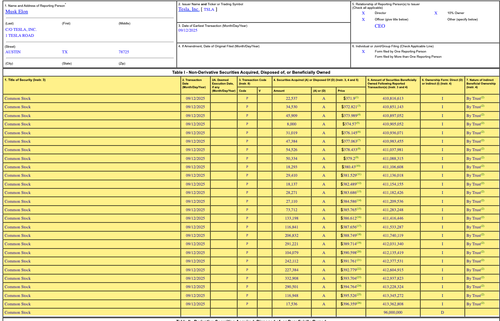While migration phenomena are as old as humanity, in the last half century they became mass and, for example, seemingly uncontrolled. This problem can be considered at different angles.
It can be analysed on the basis of an analysis of the socio-economic facts themselves, i.e. a method of materialistic analysis. Cultural-racial argumentation can besides be used, based on the ideology of "civilizational scraps" and can be applied to moralistic slogans based on idealistic beliefs. Here we will be limited to examining clearly noticeable and measurable facts, or materialistic methods.
Partially open borders
So let us start by stressing the fact that borders can always be closed, as you would like, almost completely tightly, as evidenced by the Berlin Wall, the Israeli Wall or the wall separating 2 Korean States. Thus, if the borders are open or semi-open somewhere, it means that the authorities of these countries are in a position to do so, and should start by asking why the countries from which they emigrate, and even more so the countries to which they immigrate, have an interest in doing so, and what are the environments, the classes that govern this policy?
In this situation, it can be concluded that the capitalist states of the West have decided to have boundaries de facto "half-closed" for mass migration movements from poorer or war-stricken countries. So, regardless of the fact that there are various forms of “uninvited” towards strangers, the question should be asked why it is decided in almost all Western countries to introduce a more or little akin immigration policy, and only since the late 1970s. So from the minute Western capitalism is constantly plunged into a structural crisis, present considered obvious. This entails an increased exploitation of capitalism's periphery countries on the basis of price calculations and interest rates to their detriment, hence a "migration must".
Capitalistic immigration mechanism
And here are 4 undeniable facts:
- The difficulties posed by the population are causing the mass of workers from poorer countries to proceed to work in countries where transnational western companies have delocalised most of their production, due to the fact that there are much lower earnings (so-called "labour costs"). So these companies have no interest in making their borders full open so that they escape besides much labour from their factories.
- At the same time, a number who is legally or illegally passed through the borders of richer countries in the name of pity and is later mostly without legal papers must in turn work in black, that is to say, agree to gain much lower than the minimum national rate, which besides implies that the indigenous population, legally resident, whether local or not, is forced to accept a simplification in its earnings in order to compete on the labour marketplace with fresh visitors.
- Some educated in turn at the expense of little developed elite countries emigrating to richer countries (doctors, dentists, IT specialists, nurses, specialists of various deficit sectors, etc.) must besides agree to worse working conditions than natives due to either not recognising diplomas, their partial designation or specially signed contracts before their immigration.
- The legalised part of immigrants or immigrant children in turn must besides frequently agree to worse working conditions due to increased difficulties in uncovering work due to discrimination and media racist campaigns.
A visitor from the erstwhile Empire closer than a Pole
So the problem of migration is not whether borders are open or not, but whether there is simply a comparatively coherent economical situation between regions and countries subject to the same socio-economic system. So in the era of globalisation, capitalism is comparatively comparable in all countries, with full open borders for the movement of capital and goods both ways. due to the fact that we cannot decently separate the issue of the movement of forces working from the question of the movement of capitals and goods, which the main media networks want to silence.
The vast majority of people around the planet like to live among their own, if possible, which can be easy checked, reaching for examples from history. And if we analyse the course of migration movements in turn, we announcement first of all that most frequently erstwhile individual feels compelled to emigrate, he prefers to choose a country with which he has, despite frequently mixed feelings, certain ties raised from common as specified a history. So Indian or Kenyan will go easier to England. Algerian or Gabonese will go to France, Indonesian will go to the Netherlands, Turk will go to Germany, Tajik will go to Russia, Mexican will go to California or Spain, and Ukrainian will go to Poland. The indigenous population will be more likely, despite even racist tendencies in some, to accept an immigrant who lived in the same state-cultural ellipse for centuries than an immigrant from another countries, even closer geographically and seemingly closer culturally. We noticed this during, for example, Brexit, erstwhile British nationalists frequently found themselves at joint rallies with the British of Pakistani or Jamaican origin against EU laws allowing the admission of fresh immigrants, although they are expected to be from “white” Central and east Europe, and what the analysis of the results of the referendum confirmed. However, the Indus has a kinder art closer to the English than the Polish. For here the visible "perfect culture" and alleged "values" are little crucial than the economic, social and legal-political culture on a regular basis.
Differences bring migration
As an example, let us compare the situation that prevailed in the russian Union with the situation in Russia. In times of power and cohesion of the USSR, the people of this country could freely travel across the state area and residents of Asian russian republics drove rather massively to Russia for business, commercial (legal and little legal), cultural, tourist, medical and another purposes. However, there was small effort on the part of these people to decision to the European republics of the USSR on a permanent basis, which proves that, naturally, a citizen of the USSR from the Asian republics, who earned about the same amount of money as any citizen of that country preferred to be "among his own." The situation changed radically after the dismantling of the USSR and the transition of the erstwhile russian republics to the free marketplace economy, or capitalist economy. Then began the problems of escape of educated staff and labour of post-missile countries poorer than even Russia in the 1990s. This created problems for the coexistence of fresh visitors in Russia, which Russia did not know at a time erstwhile it had... open borders towards Central Asia or the Caucasus. At the time, however, working conditions were more or little comparable across the full common state. Of course, 1 can have a different attitude to the essence of real socialism, but this is not the case, but the fact that erstwhile dealing with a more or little levelled situation in a given political and economical area of multinationalism, the vast majority of people see no reason to leave their ellipse permanently. The drama of migration is due to the fact that we are now dealing with a global strategy that is not even capable of a minimum levelling of regional and social disparities within the areas that it has taken over.
Need for fresh rules
So humanity is facing a fresh task present if we want to avoid tensions, wars endless, defiant and endless migration in the interests of ‘Happy few’ belonging to a supranational class with imperialist countries. We request to make rules for the construction of a fresh strategy that takes into account the needs of a wide scope of humanity and is capable of controlling both the movement of people and the control of the movement of capital and goods, in the interests of both the public and the broadcasters. For example, the Chinese and another countries reluctant to apply the rule of an uncontrolled market, e.g. effort to advance under the name of the method ‘win-win’, which is to be based on the setting of common far-sighted goals, together with the pursuit of a fresh civilization that takes into account cultural and economical differences between countries and nations, and thus a shift from globalisation to a fresh "inter/-/nationalism".
Prof. Bruno Drwęski


















